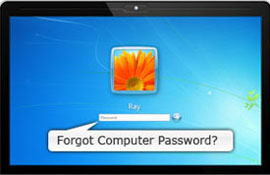Computer security is an eternal topic among computer users. Any computer risk will bring users into troubles, even disasters. In this article, I will you five tips for better computer security. I hope these tips will help you avoid some common computer risks.
1. Always upgrade your Windows OS and software.
There is no such thing as perfect software. Usually a software program may have several issues and could potentially have security vulnerabilities that can leave your computer open to attacks. Keeping the OS and other software updated is very important for patching security holes and improving performance. Update your applications whenever you can. If you are still using Windows XP or Vista, you’d better go and change to the latest Windows 7.
2. Always run system scans to check for vulnerabilities
Trojans, viruses, spyware, and other malware can not only damage or destroy your computer data but is also capable of monitoring your computer to learn more about your viewing habits on the Internet or even log all your keystrokes to capture sensitive data such as passwords and credit card information. To protect your computer from these threats, install a strong anti-virus program. It would be better if the program include anti-spyware function. And remember to scan your computer on a regular basis.
3. Always browse safe websites and download from trusted websites
Any website that doesn’t have good security certificate must be avoided by you if you don’t want your computer to get infected with viruses. Never download anything from entrusted websites to in case of hidden security risks. Use good security tool to scan websites before you browse them and programs after download. Besides, if you receive a pop-up message from Google that the site you are visiting is not secure to enter, close the window immediately.
4. Always password protect your computer data
Setting a strong Windows login password on your computer is a good way to protect your computer data from unauthorized users. But this is not enough. You’d better set a BIOS password to protect your computer BIOS boot secure and keep your computer more secure. Besides, encrypt your files and files, even your hard drive with encryption software.
5. Avoid sharing your wireless connection
Sharing your wireless connection with others is one of the most popular ways where computer gets most attacks fro. Your computer will become exposed to many dangers if you connect your wireless connection to another computer on the network without scanning the other system in question. So when connecting your computer wirelessly with other computers, make sure that you know the conditions of the second computer on the other side to be sure of not getting virus attacks from that action.

no comment untill now